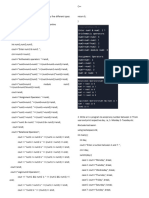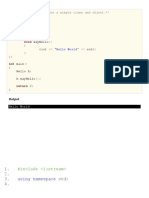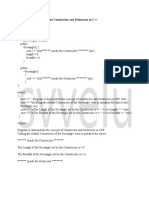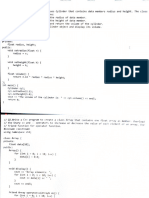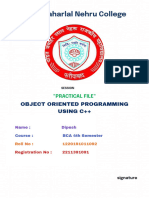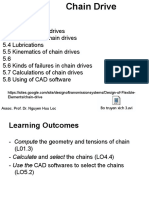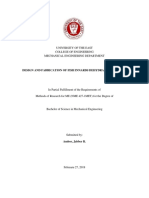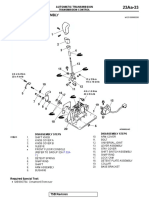0% found this document useful (0 votes)
5 views5 pagesC - Lab - Programs
The document contains multiple C++ programs demonstrating various programming concepts. It includes examples of sorting arrays, calculating the sum of natural numbers, swapping values using call by reference, function overloading, class inheritance, and multilevel inheritance. Each program is accompanied by sample output to illustrate the functionality.
Uploaded by
noideasfornames2Copyright
© © All Rights Reserved
We take content rights seriously. If you suspect this is your content, claim it here.
Available Formats
Download as PDF, TXT or read online on Scribd
0% found this document useful (0 votes)
5 views5 pagesC - Lab - Programs
The document contains multiple C++ programs demonstrating various programming concepts. It includes examples of sorting arrays, calculating the sum of natural numbers, swapping values using call by reference, function overloading, class inheritance, and multilevel inheritance. Each program is accompanied by sample output to illustrate the functionality.
Uploaded by
noideasfornames2Copyright
© © All Rights Reserved
We take content rights seriously. If you suspect this is your content, claim it here.
Available Formats
Download as PDF, TXT or read online on Scribd
/ 5










